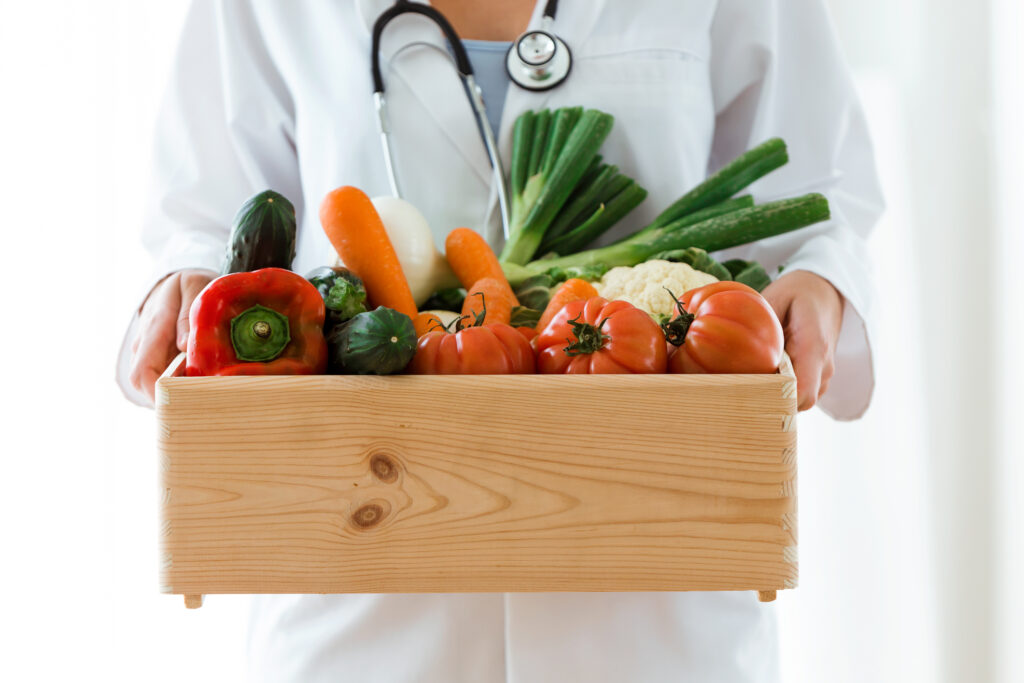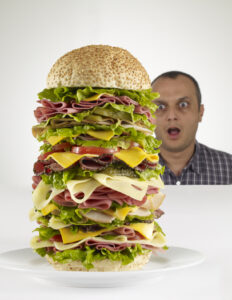 I was recently on a phone interview with a newspaper editor who asked me to briefly explain how the Mediterranean people can eat all the foods they do and still be thin and healthy.
I was recently on a phone interview with a newspaper editor who asked me to briefly explain how the Mediterranean people can eat all the foods they do and still be thin and healthy.
I responded that they can do what they do because they love their food. There was a pause before she replied, “No that’s exactly wrong. We love our food too much.”
This is what it really means to love your food.
The response was instructive and indicated one of the most fundamental confusions in our culture of health: We conflate volume with value, quantity with quality, and love with consumption.
This is not an incidental confusion; instead, this cultural connection between the love of food and the consumption of food drives many of our health problems. Below are three ways this can happen and how a true love of food can help prevent this from occurring.
1. If you love your food, take your time.
Notice people when they eat, especially at lunch. It’s a bit of a frenzy getting to the bottom of whatever plate, bowl, or sack they’re eating from, and in five minutes, the meal is over. This turns eating into a chore, into something to get over with as quickly as possible, and it’s a big problem in our culture.
Changing this pattern is important because eating pace influences eating volume. The old saying that it takes 20 minutes for the “full” signal to get from your digestive system to your brain isn’t perfectly true, but it’s not far off. Satiety hormones such as cholecystokinin drift up into the brain regions involved in the sensation of fullness and take a while to create cognitive awareness.
This is why eating very quickly can cause us to overrun the satiety signal and become full (physiologically) long before the awareness of fullness is achieved (psychologically). Under these conditions, we eat until we feel full, but by that time we have already overdone it.
If you love your food, take your time with it. When you do, the satiety signals have a chance to kick in and prevent eating to excess.
2. If you love your food, taste it.
Have you ever watched someone eat in the car? With the burrito held in one hand sitting at a red light, they know that light’s going to turn green at any moment, so they gobble it back as quickly as possible. This eating pattern couldn’t be further from food appreciation.
Taking the time to taste food affects the ability to control consumption through sensory-specific satiety. This is a neural mechanism or reflex that connects taste appreciation to hunger drives. When a person tastes an item of food, takes his or her time with it, and leaves it on their palate, this reflex reduces the drive to consume that food.
In other words, consumption becomes self-limiting.
In contrast, filling the mouth with food doesn’t help us taste it because taste buds are on the surface of the tongue. And so, if your mouth is filled with food, the majority goes untasted. This bypasses the neural mechanism, and you end up eating more.
So if you love your food, savor the flavor. When you do, the self-regulatory networks have an opportunity to help control consumption.
3. If you love your food, go for quality over quantity.
If a person takes her time with a meal and tastes her food in the process, she’ll tend to start choosing healthier, higher quality foods because of a fundamental change in her flavor preferences. We commonly see this phenomenon when people resolve to eat real food and avoid processed food products; after a period of time, a “spot test” of their favorite junk food results in the realization that it just doesn’t taste that good. At this point, the person will choose healthier foods because they simply prefer them.
If you love your food, choose real foods without synthetic ingredients. This will train your taste buds so that the old junk foods you used to crave so much are not as desirable.
The bottom line: love of food versus love of eating.
Economically, we are a consumer culture, and that spills over into our culture of health. This truth becomes obvious in the common confusion between the love of food and the consumption of food. Teasing these two apart and learning to love food again has immediate, net positive effects on health.
Taking time with a meal and truly tasting the food we eat makes space for physiological mechanisms that help control quantity and quality of consumption and will lead to improved food preferences and better eating habits in the long run.


